For 2024 ADAC have tested two sizes of winter tires. The below test covers the 16" version. There's nothing particularly shocking in the overall results, so enjoy the data, which includes wear, below!
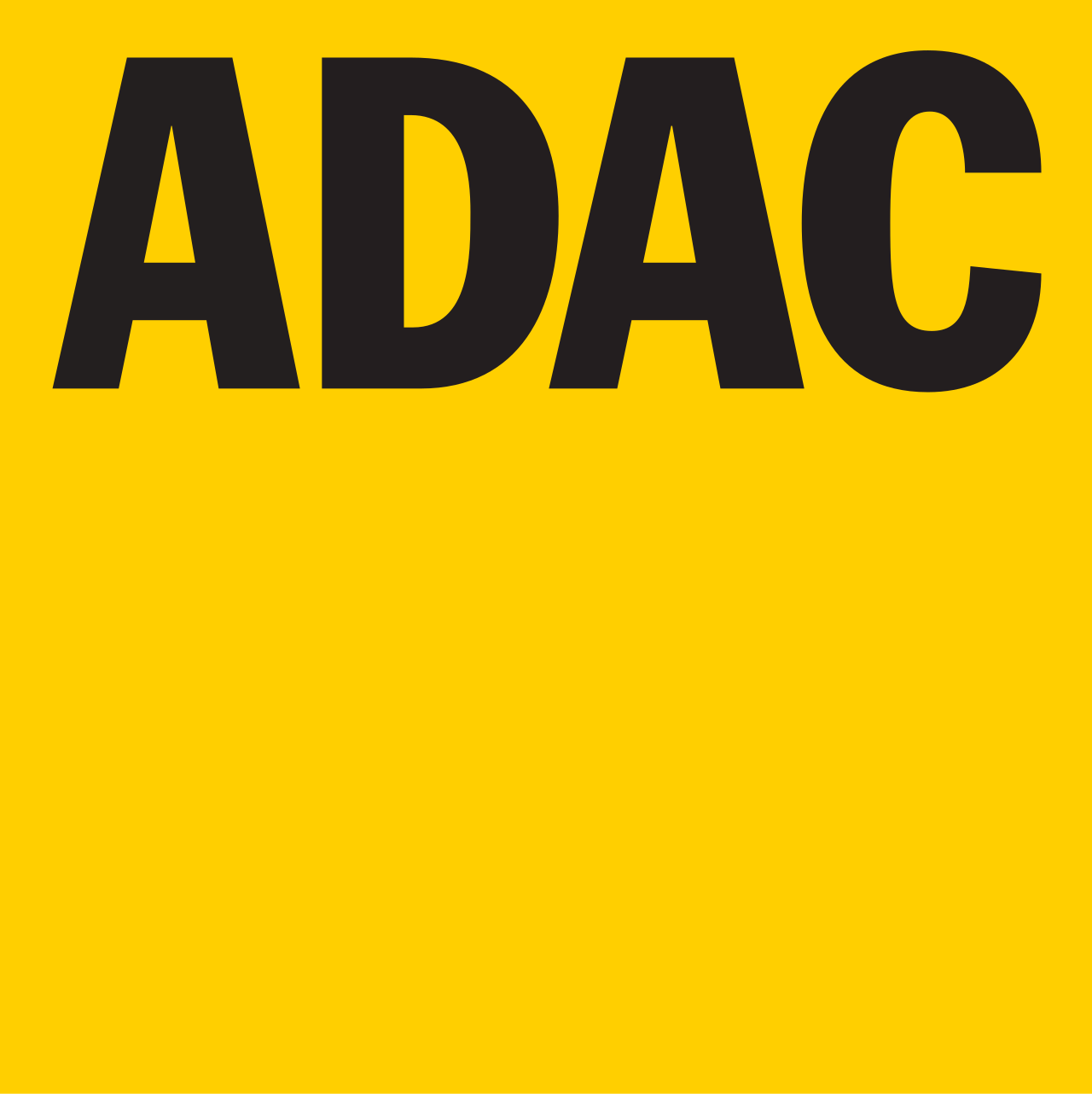
6 categories (12 tests)
| Test Category | Best Performer | Worst Performer | Difference |
|---|---|---|---|
| Dry (1 tests) | |||
| Dry Braking | ▲ Falken EUROWINTER HS02: 43.3 M | ▼ Winrun Winter max A1 WR22: 46.5 M | 3.2 M (6.9%) |
| Wet (4 tests) | |||
| Wet Braking | ▲ Continental WinterContact TS 870: 35.1 M | ▼ Winrun Winter max A1 WR22: 40.7 M | 5.6 M (13.8%) |
| Wet Braking - Concrete | ▲ Continental WinterContact TS 870: 38.5 M | ▼ Winrun Winter max A1 WR22: 46.6 M | 8.1 M (17.4%) |
| Straight Aqua | ▲ Hankook Winter I cept RS3: 84.4 Km/H | ▼ Zeetex WH 1000: 68.9 Km/H | 15.5 Km/H (22.5%) |
| Curved Aquaplaning | ▲ Continental WinterContact TS 870: 3.7 m/sec2 | ▼ Zeetex WH 1000: 2.4 m/sec2 | 1.3 m/sec2 (54.2%) |
| Snow (2 tests) | |||
| Snow Braking | ▲ Dunlop Winter Sport 5: 9.9 M | ▼ Falken EUROWINTER HS02: 11 M | 1.1 M (10.0%) |
| Snow Traction | ▲ Michelin Alpin 6: 236 N | ▼ Zeetex WH 1000: 208 N | 28.0 N (13.5%) |
| Ice (1 tests) | |||
| Ice Braking | ▲ Continental WinterContact TS 870: 18.3 M | ▼ Nokian Snowproof 2: 21.6 M | 3.3 M (15.3%) |
| Comfort (1 tests) | |||
| Noise | ▲ Vredestein Wintrac: 70.4 dB | ▼ Dunlop Winter Sport 5: 73 dB | 2.6 dB (3.6%) |
| Value (3 tests) | |||
| Wear | ▲ Michelin Alpin 6: 53200 KM | ▼ Vredestein Wintrac: 33400 KM | 19,800.0 KM (59.3%) |
| Fuel Consumption | ▲ Dunlop Winter Sport 5: 5.1 l/100km | ▼ Pirelli Cinturato Winter 2: 5.2 l/100km | 0.1 l/100km (1.9%) |
| Abrasion | ▲ Michelin Alpin 6: 48 mg/km/t | ▼ Pirelli Cinturato Winter 2: 79 mg/km/t | 31.0 mg/km/t (39.2%) |
Dry
The Falken EUROWINTER HS02 performed best in dry braking, stopping in 43.3 meters. The worst performer was the Winrun Winter max A1 WR22, taking 46.5 meters to stop - a difference of 3.2 meters. Most tires clustered between 44-46 meters, with the top 3 (Falken, Nokian, and Goodyear) showing noticeably shorter braking distances.
Wet
In wet braking, there was a tie for first place between the Continental WinterContact TS 870 and Pirelli Cinturato Winter 2, both stopping in 35.1 meters. The worst performer was the Winrun Winter max A1 WR22 at 40.7 meters - a significant 5.6 meter difference. The top 5 tires were closely grouped within 0.8 meters of each other, while there was a clear performance drop-off for the bottom 3 tires.
On concrete in wet conditions, the Continental WinterContact TS 870 performed best, stopping in 38.5 meters. The Winrun Winter max A1 WR22 again performed worst, taking 46.6 meters - a substantial 8.1 meter difference. There was a noticeable performance gap between the top 4 tires and the rest of the field.
The Hankook Winter I cept RS3 performed best in straight aquaplaning, maintaining control up to 84.4 km/h. The worst performer was the Zeetex WH 1000 at 68.9 km/h - a significant 15.5 km/h difference. There was a clear performance divide, with the top 7 tires maintaining control above 80 km/h, while the bottom 5 dropped below 77 km/h.
In curved aquaplaning, the Continental WinterContact TS 870 performed best with 3.7 m/sec2 of lateral acceleration. The Zeetex WH 1000 and Winrun Winter max A1 WR22 tied for worst at 2.4 m/sec2 - a difference of 1.3 m/sec2. There was a notable performance gap between the top 5 tires and the rest of the field.
Snow
The Continental WinterContact TS 870 and Dunlop Winter Sport 5 tied for best snow braking performance, stopping in 9.9 meters. The Zeetex WH 1000 and Falken EUROWINTER HS02 tied for worst at 11.0 meters - a difference of 1.1 meters. Most tires performed relatively closely, with only 1.1 meters separating the best from worst.
The Michelin Alpin 6 provided the best snow traction at 236 N. The Zeetex WH 1000 performed worst at 208 N - a difference of 28 N. There was a clear performance divide, with the top 9 tires providing over 229 N of traction, while the bottom 3 dropped below 222 N.
Ice
On ice, the Continental WinterContact TS 870 performed best, stopping in 18.3 meters. The Nokian Snowproof 2 performed worst at 21.6 meters - a difference of 3.3 meters. There was a notable performance gap between the top 6 tires and the rest of the field.
Comfort
The Vredestein Wintrac was the quietest tire at 70.4 dB. The Dunlop Winter Sport 5 was the noisiest at 73.0 dB - a difference of 2.6 dB. Most tires performed relatively closely, with only 2.6 dB separating the quietest from the noisiest.
Value
The Michelin Alpin 6 showed the best projected tread life at 53,200 km. The Vredestein Wintrac had the shortest projected life at 33,400 km - a significant difference of 19,800 km. There was a wide range of performance, with clear tiers of durability among the tested tires.
Several tires tied for best fuel consumption at 5.1 l/100km. The worst performers (including Zeetex WH 1000 and Winrun Winter max A1 WR22) consumed 5.2 l/100km - a minor 0.1 l/100km difference. Overall, fuel consumption was very similar across all tested tires.
The Hankook Winter I cept RS3 and Michelin Alpin 6 tied for best (lowest) abrasion at 48 mg/km/t. The Pirelli Cinturato Winter 2 had the highest abrasion at 79 mg/km/t - a significant difference of 31 mg/km/t. There was a wide range of performance, with clear groupings of tires at different abrasion levels.
Results
1st: Continental WinterContact TS 870 | |||||||||||||||||||||||||||||||||||||||||||||||||||||||||||||||||||||||||||||||
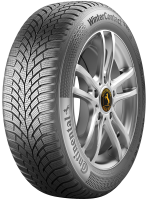
|
The Continental WinterContact TS 870 tire performs excellently in safety tests across all road surfaces. It scores particularly well in wet and winter conditions, offering good handling, short braking distances, and high safety reserves. The tire also has a good environmental rating due to its durability, low wear, light weight, and fuel efficiency.
Read Reviews |
||||||||||||||||||||||||||||||||||||||||||||||||||||||||||||||||||||||||||||||
2nd: Goodyear UltraGrip Performance 3 | |||||||||||||||||||||||||||||||||||||||||||||||||||||||||||||||||||||||||||||||
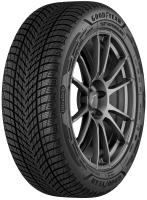
|
The Goodyear UltraGrip Performance 3 tire demonstrates varied capabilities across different road conditions. While it performs adequately on dry surfaces with good steering feel but some weaknesses in borderline situations, it excels on wet roads with above-average braking, aquaplaning resistance, and handling. In winter conditions, it shows strong handling performance and slightly above-average braking, but struggles on ice. The tire's environmental impact is positive, with good projected mileage, wear ratings, and fuel efficiency. Overall, the UltraGrip Performance 3 is most impressive on wet and general winter roads, with room for improvement on dry surfaces and icy conditions, making it a well-rounded option with particular strengths in challenging weather.
Read Reviews |
||||||||||||||||||||||||||||||||||||||||||||||||||||||||||||||||||||||||||||||
3rd: Michelin Alpin 6 | |||||||||||||||||||||||||||||||||||||||||||||||||||||||||||||||||||||||||||||||
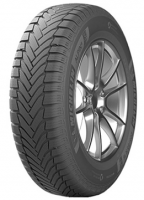
|
The Michelin Alpin 6 tire demonstrates good overall performance across various driving conditions. On dry roads, it offers good steering feedback and precise handling with adequate safety reserves, though its braking distance is slightly below average. In wet conditions, it excels in braking tests and performs well in aquaplaning resistance and handling. The tire's best performance is on winter roads, with average to above-average results in braking and traction, and very good handling due to its safety reserves and precise control. Ice braking is rated as satisfactory. Environmentally, the Alpin 6 stands out with the highest mileage and lowest wear in the test, as well as good efficiency due to its low weight and fuel consumption. However, it's slightly noisier than average. Overall, the Michelin Alpin 6 is a well-rounded tire with particular strengths in winter conditions and environmental performance.
Read Reviews |
||||||||||||||||||||||||||||||||||||||||||||||||||||||||||||||||||||||||||||||
4th: Hankook Winter I cept RS3 | |||||||||||||||||||||||||||||||||||||||||||||||||||||||||||||||||||||||||||||||
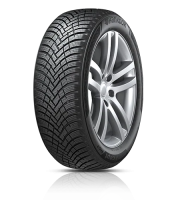
|
The Hankook Winter icept RS3 tire shows mixed performance across different driving conditions. On dry roads, it offers good steering feedback, precise handling, and good safety reserves during sudden evasive maneuvers, though its braking distance is slightly longer than average. Its performance on wet roads is less impressive, barely missing a good rating. While it handles aquaplaning well, it struggles with wet braking and handling, showing weak grip and a tendency to oversteer. The tire performs well on winter roads, with above-average braking and acceleration on snow, and safe, precise handling on snowy courses. Ice braking performance is average. Environmentally, the tire scores well with above-average mileage, very low wear, light weight, and low fuel consumption. However, it's noted that production residues on new tires unnecessarily end up in nature during the first few kilometers of use. Overall, the Hankook Winter icept RS3 excels in dry and winter conditions but has room for improvement on wet surfaces.
Read Reviews |
||||||||||||||||||||||||||||||||||||||||||||||||||||||||||||||||||||||||||||||
5th: Dunlop Winter Sport 5 | |||||||||||||||||||||||||||||||||||||||||||||||||||||||||||||||||||||||||||||||
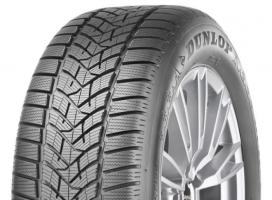
|
The Dunlop Winter Sport 5 tire shows mixed performance across different driving conditions. On dry roads, it struggles with precision and steering feedback, requiring frequent corrections to maintain the desired path. It also shows weaknesses in sudden evasive maneuvers and has below-average dry braking distances. Performance on wet roads is marginally good, with satisfactory results in braking and longitudinal aquaplaning, but excelling in lateral aquaplaning resistance and handling. The tire's strongest performance is on winter roads, where it achieves clearly good ratings. It offers some of the shortest braking distances on snow, above-average traction, and excellent handling with good combination of longitudinal and lateral forces. Ice braking narrowly misses a good rating. Environmentally, the Winter Sport 5 scores well, offering above-average mileage, low wear, and good efficiency due to its low weight and fuel consumption. Overall, the Dunlop Winter Sport 5 excels in winter conditions and environmental performance but has notable room for improvement on dry surfaces.
Read Reviews |
||||||||||||||||||||||||||||||||||||||||||||||||||||||||||||||||||||||||||||||
6th: Nokian Snowproof 2 | |||||||||||||||||||||||||||||||||||||||||||||||||||||||||||||||||||||||||||||||
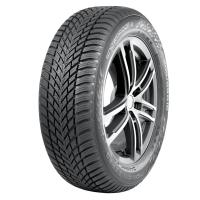
|
The Nokian Tires Snowproof 2 demonstrates mixed performance across different driving conditions. On dry roads, it shows slight weaknesses in precision and steering feedback, requiring minor corrections to maintain the desired path. Its performance in sudden evasive maneuvers is not entirely convincing, with a tendency to oversteer. However, it achieves good dry braking distances. On wet surfaces, the tire performs well overall, with good results in aquaplaning resistance and handling, though narrowly missing a good rating in wet braking. Its weakest performance is on winter roads, where it achieves good snow braking but only satisfactory results in traction and handling due to average grip levels and suboptimal force combination. Ice braking is below average. Environmentally, the tire's performance is mixed, with below-average projected mileage but good wear resistance and efficiency due to low weight and fuel consumption. Overall, the Nokian Tires Snowproof 2 excels on wet roads but has room for improvement on dry and winter surfaces, as well as in terms of longevity.
Read Reviews |
||||||||||||||||||||||||||||||||||||||||||||||||||||||||||||||||||||||||||||||
7th: Falken EUROWINTER HS02 | |||||||||||||||||||||||||||||||||||||||||||||||||||||||||||||||||||||||||||||||
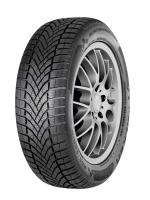
|
The Falken Eurowinter HS02 tire shows varied performance across different driving conditions. On dry roads, it excels with the best rating in the test, offering precise steering, good safety reserves, and the shortest braking distance. Wet performance is marginally good, with above-average results in braking and aquaplaning resistance, though it narrowly misses a good rating in handling due to slightly lower precision. The tire's weakest performance is on winter roads, where it achieves only satisfactory results in braking, traction, and handling, with early tendencies to under- and oversteer. Ice braking is average. Environmentally, the tire narrowly misses a good rating despite good projected mileage, wear resistance, and efficiency. Average noise levels and only adequate sustainability in its Turkish production prevent a higher environmental score. Overall, the Falken Eurowinter HS02 performs best on dry and wet roads but struggles in winter conditions, with room for improvement in environmental aspects.
Read Reviews |
||||||||||||||||||||||||||||||||||||||||||||||||||||||||||||||||||||||||||||||
8th: Zeetex WH 1000 | |||||||||||||||||||||||||||||||||||||||||||||||||||||||||||||||||||||||||||||||
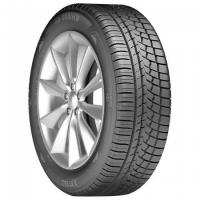
|
The Zeetex WH 1000 tire demonstrates below-average performance across most driving conditions. On dry roads, it offers only adequate steering feedback and precision, requiring frequent corrections. It tends to oversteer during dynamic maneuvers, and its braking distance is longer than average. Wet performance is also rated as merely adequate, with satisfactory results in braking and aquaplaning tests but weak handling due to low grip and poor combination of longitudinal and lateral forces. Winter performance is slightly better, rated as satisfactory overall. Snow and ice braking narrowly miss good ratings, but snow traction is clearly satisfactory, and handling is again rated as just adequate due to early under- and oversteering tendencies and lack of precision. Environmentally, the tire achieves a satisfactory rating. It scores well in projected mileage and wear resistance but misses a good efficiency rating due to its weight. Sustainability is impacted by rubber protrusions on new tires. Overall, the Zeetex WH 1000, produced in China, shows significant room for improvement across all performance aspects, particularly in dry and wet conditions.
Read Reviews |
||||||||||||||||||||||||||||||||||||||||||||||||||||||||||||||||||||||||||||||
9th: GT Radial WinterPro2 Evo | |||||||||||||||||||||||||||||||||||||||||||||||||||||||||||||||||||||||||||||||
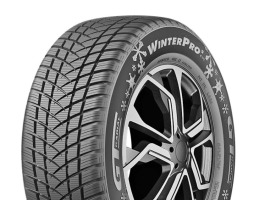
|
The GT Radial WinterPro2 Evo tire demonstrates mixed performance across different driving conditions, with notable weaknesses on dry roads. It struggles with steering precision and feedback on dry surfaces, requiring frequent corrections and showing a tendency to oversteer in dynamic maneuvers. Wet performance is slightly better, rated as clearly satisfactory overall, though handling remains a weak point due to low grip and imprecise control. The tire's best performance is in winter conditions, where it nearly achieves a good rating with strong snow braking and traction, but still shows room for improvement in handling precision and combining longitudinal and lateral forces. Environmentally, the tire receives a satisfactory rating, with good wear resistance and efficiency but only satisfactory projected mileage. Produced in China, its sustainability rating is adequate. Overall, while the GT Radial WinterPro2 Evo shows some strengths in winter conditions, it requires significant improvements across all performance aspects, particularly in dry conditions and environmental factors.
Read Reviews |
||||||||||||||||||||||||||||||||||||||||||||||||||||||||||||||||||||||||||||||
10th: Vredestein Wintrac | |||||||||||||||||||||||||||||||||||||||||||||||||||||||||||||||||||||||||||||||
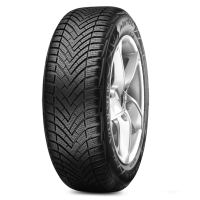
|
The Vredestein Wintrac tire receives mixed ratings for driving safety. It performs adequately on dry roads, narrowly misses a good rating on wet surfaces, and earns a clear "good" rating on winter roads. On dry surfaces, it lacks precision and requires frequent steering corrections. In wet conditions, it excels in braking and aquaplaning resistance but falls short in handling. The tire performs well on winter roads, offering good traction, excellent handling, and strong performance in icy conditions. However, its environmental assessment is only satisfactory, with a mediocre predicted lifespan. The tire's efficiency is praised for its low fuel consumption and light weight.
Read Reviews |
||||||||||||||||||||||||||||||||||||||||||||||||||||||||||||||||||||||||||||||
11th: Pirelli Cinturato Winter 2 | |||||||||||||||||||||||||||||||||||||||||||||||||||||||||||||||||||||||||||||||
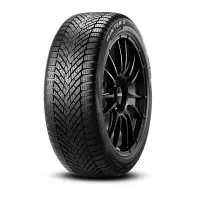
|
The Pirelli Cinturato Winter 2 tire receives mixed ratings for driving safety. It performs adequately on dry roads, earning only a satisfactory rating due to insufficient steering precision and a tendency to oversteer during dynamic maneuvers. However, it achieves good ratings on both wet and winter roads. On wet surfaces, it excels in braking and longitudinal aquaplaning resistance, narrowly missing good ratings in lateral aquaplaning and handling. The tire performs well on winter roads, with good braking on snow and ice, excellent snow traction, and very good handling characteristics. Its environmental assessment falls short of a good rating, with satisfactory wear resistance and only average predicted lifespan. However, the tire scores well in efficiency, particularly due to its low weight.
Read Reviews |
||||||||||||||||||||||||||||||||||||||||||||||||||||||||||||||||||||||||||||||
12th: Winrun Winter max A1 WR22 | |||||||||||||||||||||||||||||||||||||||||||||||||||||||||||||||||||||||||||||||
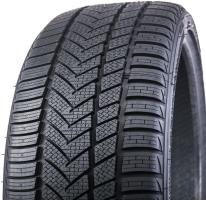
|
The Winrun Winter-max A1 WR22 tire receives a poor overall safety rating, primarily due to significant weaknesses on wet surfaces. On dry roads, it offers good steering feedback and borderline behavior, though with longer than average braking distances. Its performance on wet roads is inadequate, with early understeer and oversteer tendencies, poor grip, and barely satisfactory aquaplaning resistance. However, the tire performs well on winter roads, demonstrating good braking and traction on snow and ice, as well as precise handling on snowy surfaces. In terms of environmental impact, the Chinese-made tire narrowly misses a good rating. It scores well in predicted mileage and wear resistance but only achieves a satisfactory efficiency rating due to its high weight.
Read Reviews |
||||||||||||||||||||||||||||||||||||||||||||||||||||||||||||||||||||||||||||||







